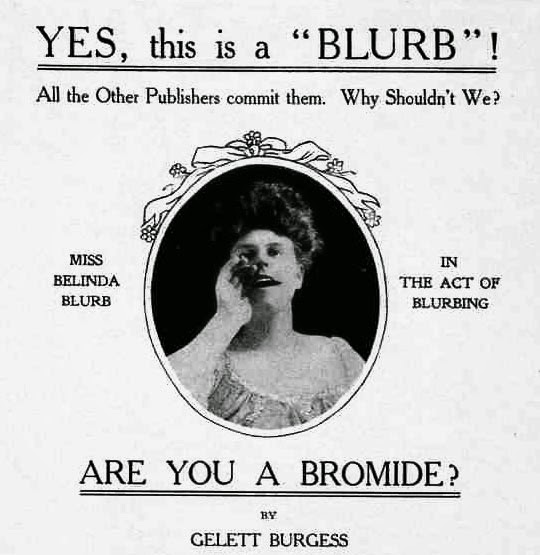The Trouble with the BLURB
A blurb is a short summary or promotional piece accompanying a creative work. The word was coined in 1907 by American humorist Gelett Burgess (1866–1951). -Wikipedia
The trouble with the
blurb is that it tends to overpromise (and the book to underdeliver).
We cannot fault the
author or the blurb writer entirely because the nature of the blurb is to
persuade us (readers) to purchase the book. It will overpromise at some point.
After all, it is a sales pitch hiding under the guise of a cleverly written
synopsis.
It’s a tricky little
thing to write because it wants to reveal things without revealing things (see,
it really is tricky!). And that part it doesn’t reveal is the proverbial hook
that magically transforms ‘window shoppers’ into actual buyers.
An effective blurb reels
you in with the book’s perceived (preliminary) brilliance in 200 words or less.
It thrills. It provokes. It intrigues.
But there’s also this
tiny bit of unspoken consequence of a very convincing blurb – it raises expectations
of the book unnecessarily.
And we all know what
happens when expectations are not met. It gives reason for some readers to post
negative reviews and DNFs (Did Not Finish) – OR the rather more permanent consequence of “no
repeat purchase”.
No wonder authors dread
writing the blurb more than re-writing or editing the book itself.
Too clever
and they could disappoint; too boring they could repel.
What's an author to do?





